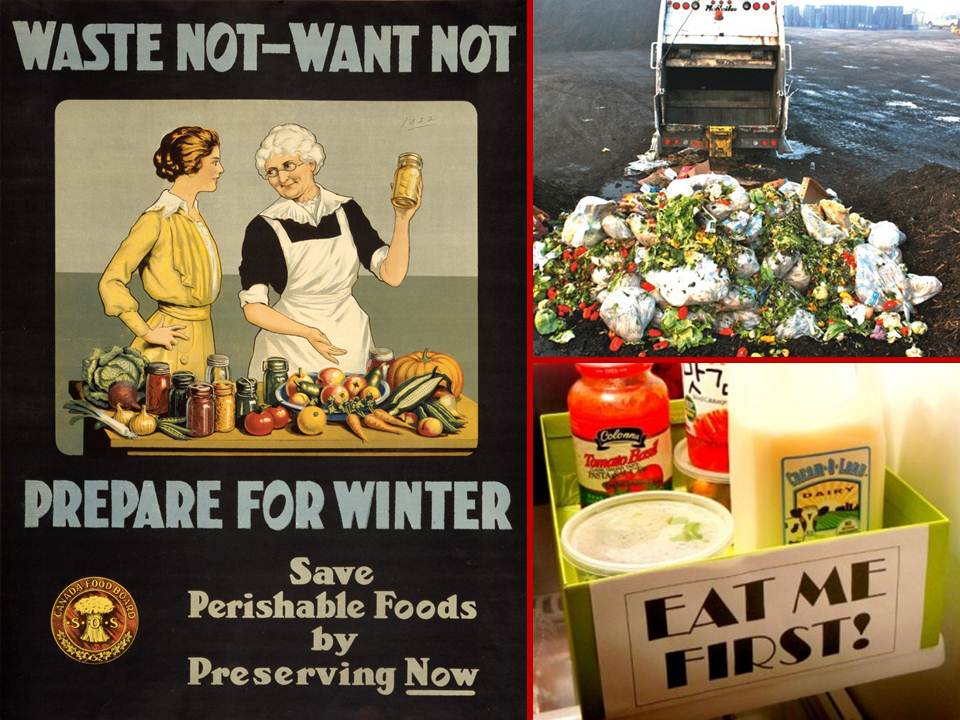Willful Waste, Woeful Want
Posted by Martin Ogle on Jan 7, 2015 in All Posts | Comments Off on Willful Waste, Woeful Want
Dictionary.com analyzes the American idiom, “waste not, want not” as follows: “Wise use of one’s resources will keep one from poverty. For example, I just hate to throw out good food—waste not, want not. This proverbial saying was first recorded in 1772 but had an earlier, even more alliterative version, willful waste makes woeful want (1576).”
How fitting that the example used for this idiom be food. Of all the ways we waste the riches of our world, food waste is among the most visceral to me. We need it to live, it is “of and from life,” and there’s the well-known matter of people starving or hungry while we squander. Since 1974, the amount of food wasted in the United States has increased by about 50%. The total of all food wasted is almost 40%, and consumers account for about 60% of that! Contemplating this does more than leave a bad taste in my mouth, it makes me sick.
I was hesitant to write about food waste because so much has been written already. Type “food waste” into a search engine and see what pops up! The vast amount of food wasted at all stages of food production and use (including most notably, for the purposes of this essay, at home) is well documented. The consequences to our pocketbooks and living systems are well known. Tips and methods for reducing the amount of food waste in the household or at restaurants are legion. To illustrate, I’ll point out just two websites here – http://www.onegreenplanet.org/lifestyle/6-ways-to-cut-down-your-food-waste-and-why-its-important-to-do-so/ and http://www.epa.gov/foodrecovery/ .
But, hold on. Why would we even need websites, experts or this essay to help us reduce food waste, at least at the household level? Most of the solutions are just plain, common sense. Don’t buy more food than you can use before it spoils. Don’t cook what won’t be eaten (leftovers and freezing food are great ways to go, but if this is not working to reduce food waste, don’t cook so much!). Don’t buy food that consistently goes bad. Know what’s in the refrigerator and pantry so you don’t buy more of what you have, especially if it is already going bad. No matter how much meat you eat, be especially aware of wasted meat as it is the most resource intensive food. Don’t go out to eat if there is food going bad (this could be another good incentive to be frugal at home!). These are elements of basic, healthy home economics. Doing these and other obvious things don’t require expert advice or training and doing so would have huge impact!
So the question occurs to me – “why don’t we all do these things; why wouldn’t we?” Even at the most self-serving level, reducing food waste would save money. According to the Washington Post, “American families throw out between 14 and 25 percent of the food and beverages they buy. This can cost the average family between $1,365 to $2,275 annually.”* (That’s $165 Billion in wasted food for the nation as a whole, by the way). Preventing food from going bad once you’ve bought it is not hard. It might require changing some habits, but it’s not hard. Doing so as families, groups, communities and nations would enable us to save massive amounts of energy and water, prevent the conversion of wild lands to farmland, buy us time while we figure out how to cope with the coming massive shortages of nutrients, reduce the massive greenhouse gas emissions associated with farming and rotting food . . .
In the face of these benefits, the relative ease of changing our practices and the costs and consequences of not doing so, why don’t we immediately work to reduce our food waste? Are we so overwhelmed with modern life that we cannot break our habits; cannot take care of the basics? Do we even care about the impacts of our actions? Do we believe the evidence? Why do we waste so much?






